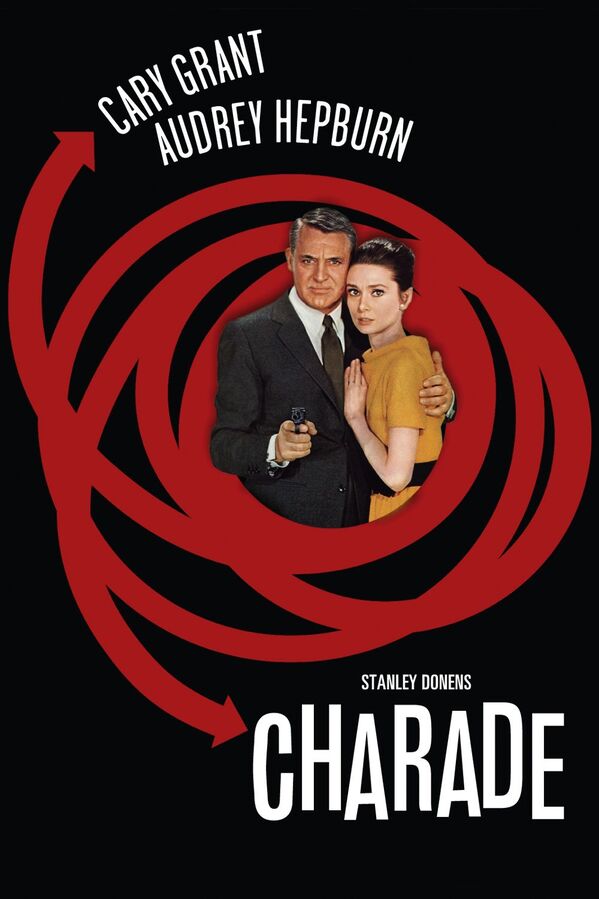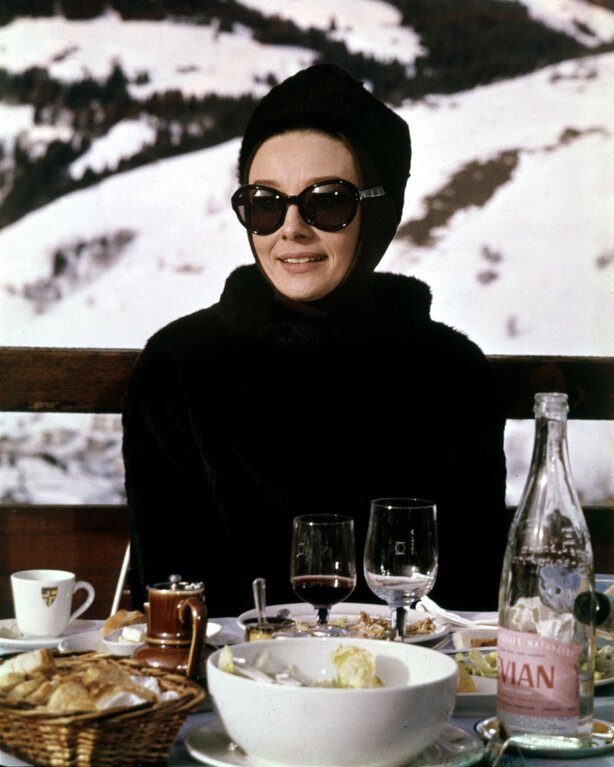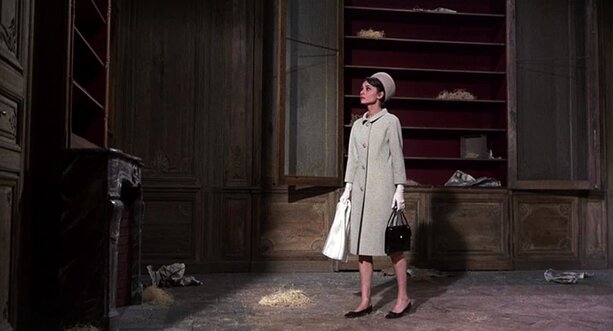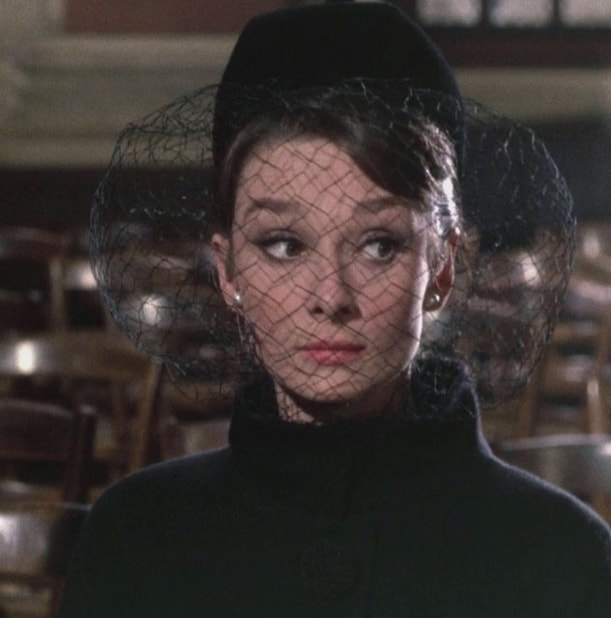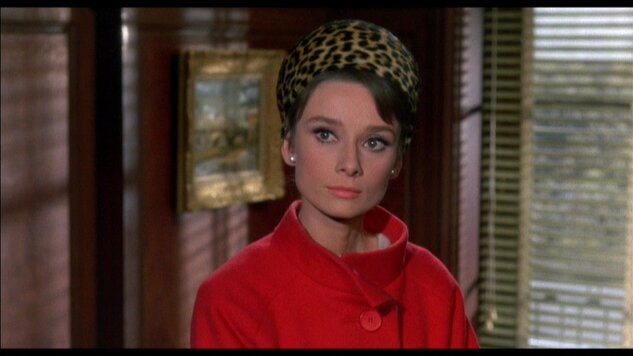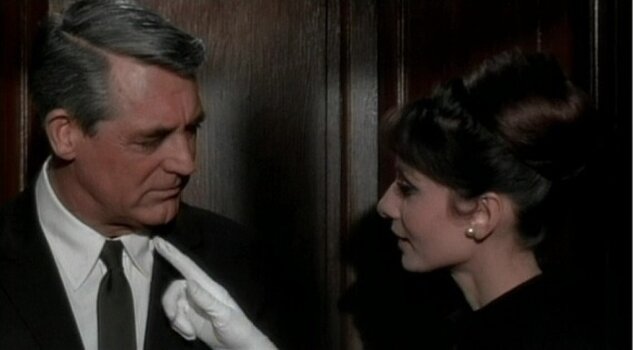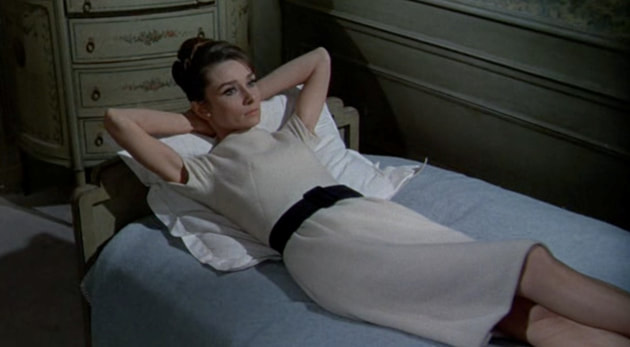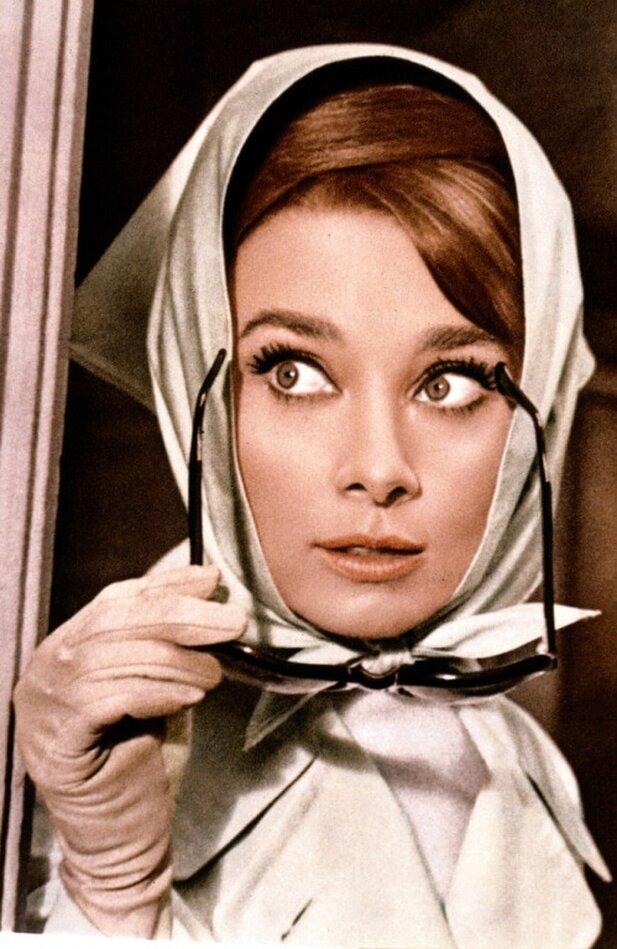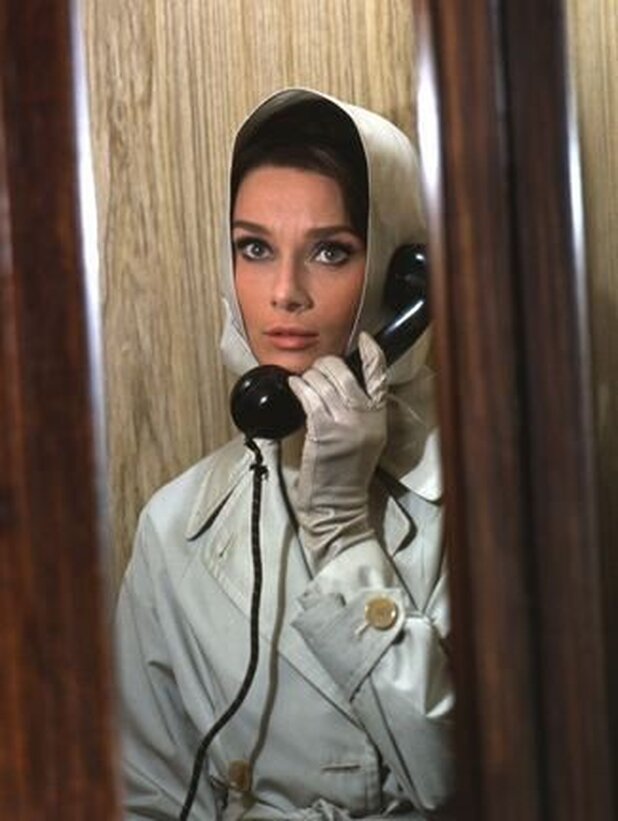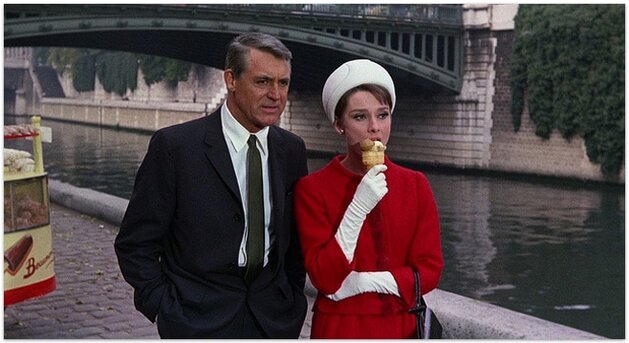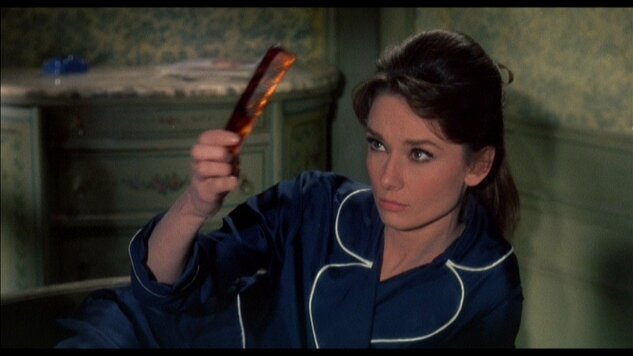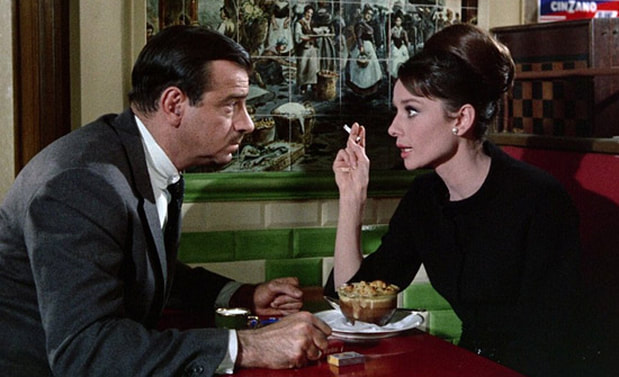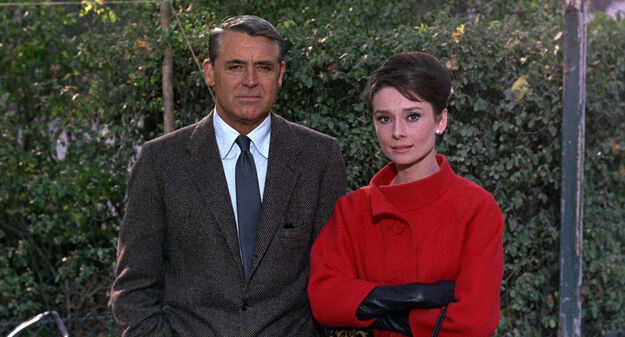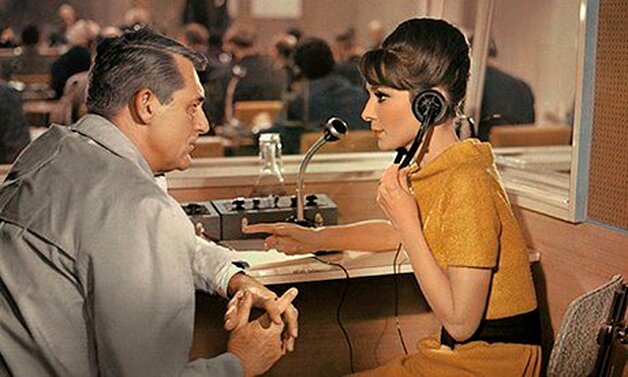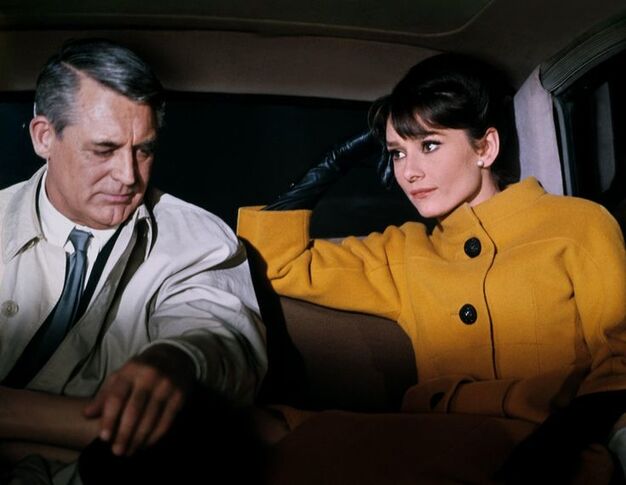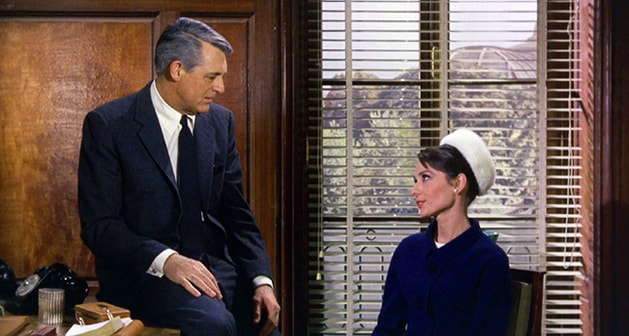|
Charade is a 1963 American romantic comedy mystery film produced and directed by Stanley Donen, written by Peter Stone and Marc Behm, and starring Cary Grant and Audrey Hepburn. The cast also features Walter Matthau, James Coburn, George Kennedy, Dominique Minot, Ned Glass, and Jacques Marin. It spans three genres: suspense thriller, romance and comedy. The film has a sparkling screenplay, especially the repartee between Grant and Hepburn. It was filmed on location in Paris. Henry Mancini's score features the popular theme song Charade. It has animated titles by Maurice Binder. Charade has been described as "the best Hitchcock movie [that] Hitchcock never made". PlotWhile on holiday in the French Alps with her friend Sylvie, Regina "Reggie" Lampert(played by Audrey Hepburn), an expatriate American working as a simultaneous interpreter, she meets Peter Joshua(played by Cary Grant), a charming American. On her return to Paris, she finds her apartment stripped bare. A police inspector tells her that her husband Charles (with whom she is going to divorce) sold off their belongings, then was murdered while leaving Paris. Their money is also missing. Reggie is given her husband's belongings, a small travel bag containing a letter addressed to her, a ship ticket to Venezuela, four passports in multiple names and nationalities, and other miscellaneous personal items. At Charles' sparsely attended funeral, three men show up to view the body. One sticks a pin into the body to determine if Charles is really dead. Reggie is summoned to meet CIA administrator Hamilton Bartholomew at the American Embassy. She learns that the three men are Herman Scobie, Leopold W. Gideon, and Tex Panthollow. During World War II, they, Charles, and another man, Carson Dyle, were assigned an OSS operation to deliver $250,000 ($3.7 million in current dollar terms) in gold to the French Resistance, but instead stole it. Carson was fatally wounded in a German ambush, and Charles double-crossed the others, taking all the gold. The three survivors are after the missing money, as is the U.S. government. Hamilton insists Reggie has it, even if she does not know what or where—and that she is in great danger. Peter the charming American mysteriously reappears in Reggie's life in Paris and helps her move into a hotel. The three criminals separately threaten her, each convinced she knows where the money is. Herman then shocks her, claiming that Peter is in league with them, after which Peter confesses he is Carson Dyle's brother, Alexander, and is trying to bring the others to justice, believing they killed Carson. As the hunt for the money continues, Herman and Leopold are murdered. Hamilton tells Reggie that Carson Dyle had no brother. When she confront Peter, he now says he is Adam Canfield, a professional thief. Although frustrated by his dishonesty, Reggie still trusts him. Reggie and Adam go to an outdoor market where Charles' last known appointment was. Spotting Tex, Adam follows him. At the stamp-selling booths, Adam and Tex each realize that Charles bought three extremely valuable stamps and affixed them to the envelope found in his travel bag. Both men race back to Reggie's hotel room, only to discover the stamps missing from the envelope. Reggie, who gave the stamps to Sylvie's young son, Jean-Louis, suddenly realizes the envelope's significance. She and Sylvie locate Jean-Louis, but he has already traded the stamps to a dealer. They find the dealer who says the rare stamps are worth $250,000 in total. He readily returns them to Reggie. Reggie returns to the hotel and finds Tex's body with the name "Dyle" scrawled next to it. Convinced Adam is the murderer, a frightened Reggie telephones Hamilton, who says to meet him at the Colonnade at the Palais-Royal. Adam sees her leaving and gives chase. At the Colonnade, Reggie is caught out in the open between the two men. Adam claims Hamilton is really Carson Dyle: after surviving the German ambush, he became obsessed with revenge on his ex-comrades and reclaiming the treasure. Reggie runs into an empty theater and hides in the prompt box. Carson is about to shoot her, but Adam activates a trapdoor under him, and Carson falls to his death. The next day, Reggie and Adam go to the embassy to turn over the stamps, though Adam declines going in. Inside, Reggie discovers that Adam is really Brian Cruikshank, a U.S. Treasury agent responsible for recovering stolen government property. With his true identity now revealed, he proposes marriage to Reggie. The film ends with a split-screen grid showing flashback shots of Cruikshank's four identities (Peter, Adam, Alexander, Brian), while Reggie says she hopes they have lots of boys, so they can name them all after him. Production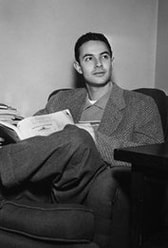 Director: Stanley Donen (April 13, 1924-21 February) He has the sensibility to be American and European at the same time, and many of his movies have the same sweetness and subtleties, like funny face, singing in the rain, royal wedding. In charade,he expresses his wit and humor in a very elegant way. 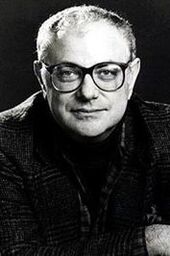 Screen writer: Peter Stone (February 27 1930-April 26 2003) Charade was his first screenplay, based on his novel The Unsuspecting Wife. According to Peter Stone, he has written the screen play with Audrey Hepburn and Cary Grant in mind, perhaps that's why they both performed so naturally as if performing themselves. 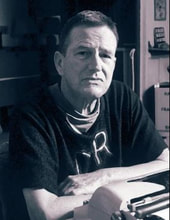 Screen writer: Marc Behm (12 January 1925 in Trenton, New Jersey – 12 July 2007 in Fort-Mahon-Plage, France) As an American solider fighting in France during the second world war, he became fascinated by French culture and fell in love with a French nurse, thus another American in Paris. Recognized better as crime novel writer, but better known as screenwriter of Charade. The smart and screenplay is full of wit, humor ad charm. To read the screenplay, click here. 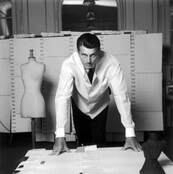 Costume Designer: Hubert de Givenchy (21 February 1927-10 March 2018) Since the film Sabrina, Hubert de Givenchy became Audrey Hepburn's favorite costume designer for her films. Although the black floor dress he designed for Audrey in film Breakfast at Tiffany's is her most iconic outfit, in Charade, he has made her the most Parisian wardrobe. 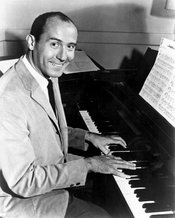 Composer: Henry Mancini (16 April 1924-14 June 1994) Best known as the composer of Moon River for the film Breakfast at Tiffany's, Henry Mancini was a master of sound that matches moving images, just like the greatest film composers Ennio Morricone and Nino Rota. Perhaps it was his Italian blood. 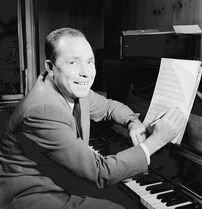 Song writer: Johnny Mercer (18 November 1909-25 June 1976) Lyric of Charade(Theme song of the film): When we played our Charade we were like children posing, Playing at games, acting out names, guessing the parts we played. Oh, what a hit we made. We came on next to closing Best on the bill, lovers until love left the masquerade. Fate seemed to pull the strings, I turned and you were gone. While from the darkened wings the music box played on. Sad little serenade, song of my heart's composing, I hear it still, I always will, best on the bill Charade. When screenwriters Peter Stone and Marc Behm submitted their script The Unsuspecting Wife around Hollywood, they were unable to sell it. Stone then turned it into a novel, retitled Charade, which found a publisher and was serialized in Redbook magazine, as many novels were at the time. The series caught the attention of the same Hollywood companies that had passed on it earlier. The film rights were quickly sold to producer/director Stanley Donen. Stone then wrote the final shooting script, tailored to stars Audrey Hepburn and Cary Grant, with Behm receiving story co-credit. Hepburn shot the film in the fall of 1962, immediately after Paris When It Sizzles, which was filmed that summer in a number of the same locations in Paris, but difficulties with the earlier production caused it to be released four months after Charade. When the film was released at Christmas time, 1963, Audrey Hepburn's line, "at any moment we could be assassinated", was dubbed over with "at any moment we could be eliminated" due to the recent assassination of President John F. Kennedy. The dubbed word stood out quite clearly, so official video releases of the film have since restored the original dialogue, though some public domain videos taken from original release prints still carry the redubbed line. Cary Grant, who turned 59 during filming, was sensitive about the 25-year age difference between Audrey Hepburn (33 at the time of filming) and himself, and was uncomfortable with their romantic interplay. To satisfy his concerns, the filmmakers agreed to add dialogue that has Grant's character comment on his age, and Hepburn's character Regina is portrayed as the pursuer. The screenwriter, Peter Stone, and the director, Stanley Donen, have an unusual joint cameo role in the film. When Reggie goes to the U.S. Embassy to meet Bartholomew, two men get on the elevator as she gets off. The man who says, "I bluffed the old man out of the last pot — with a pair of deuces" is Stone, but the voice is Donen's. Stone's voice is later used for the U.S. Marine who is guarding the Embassy at the film's ending. Watch the film in EnglishWatch the film in FrenchWatch the film in ItalianFurther interest
0 Comments
Leave a Reply. |
Categories
All
Archives
October 2023
|
